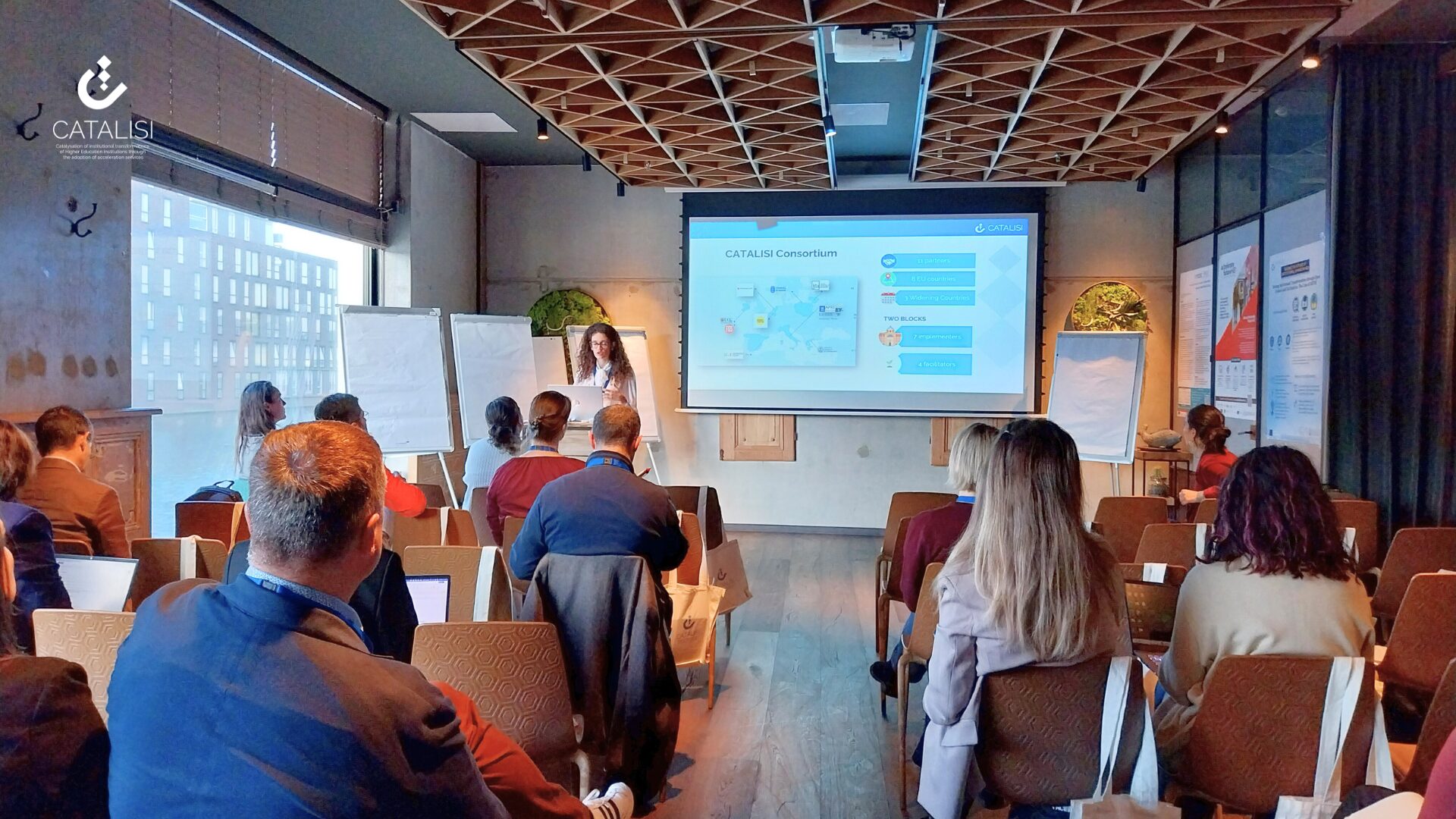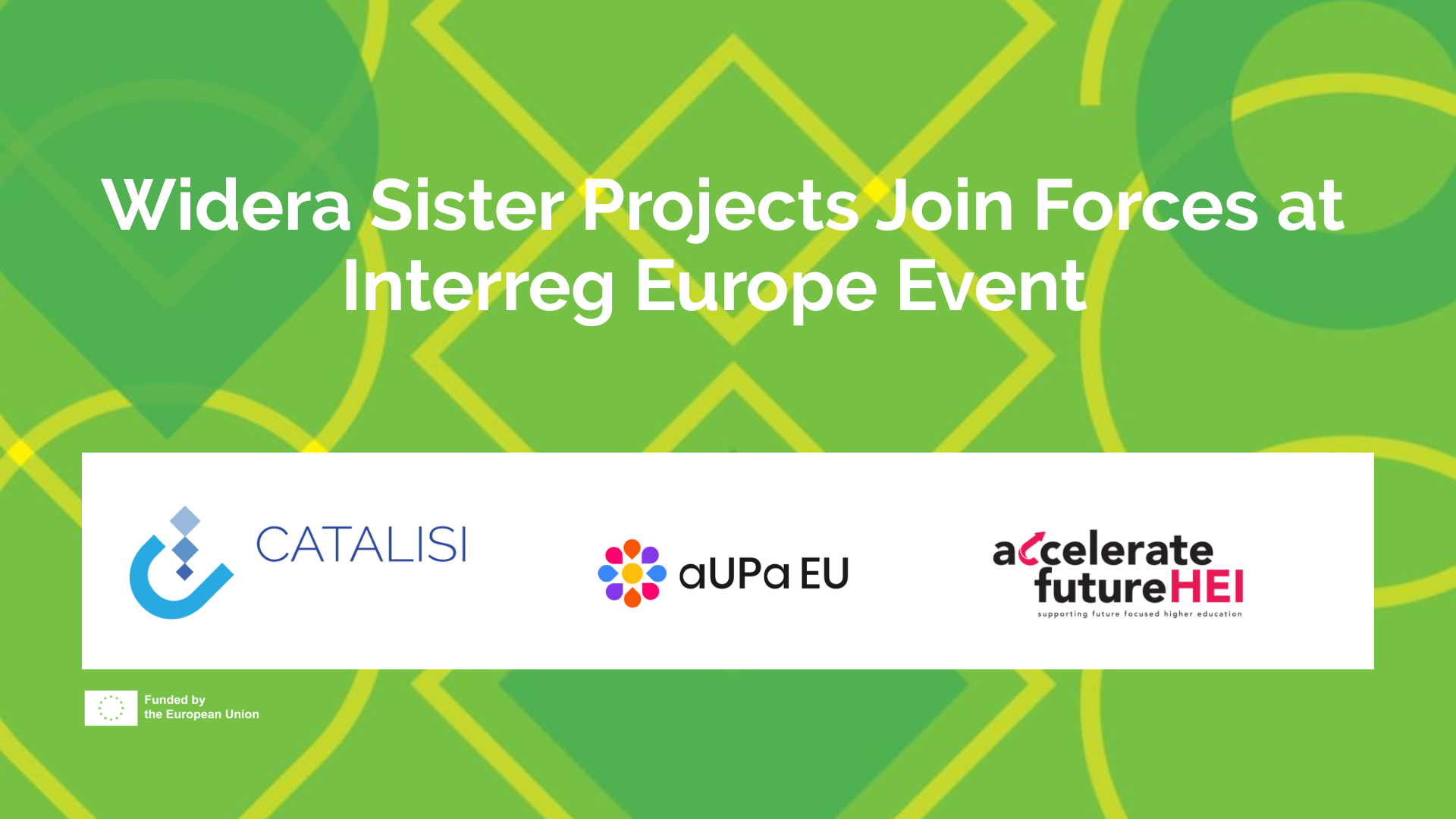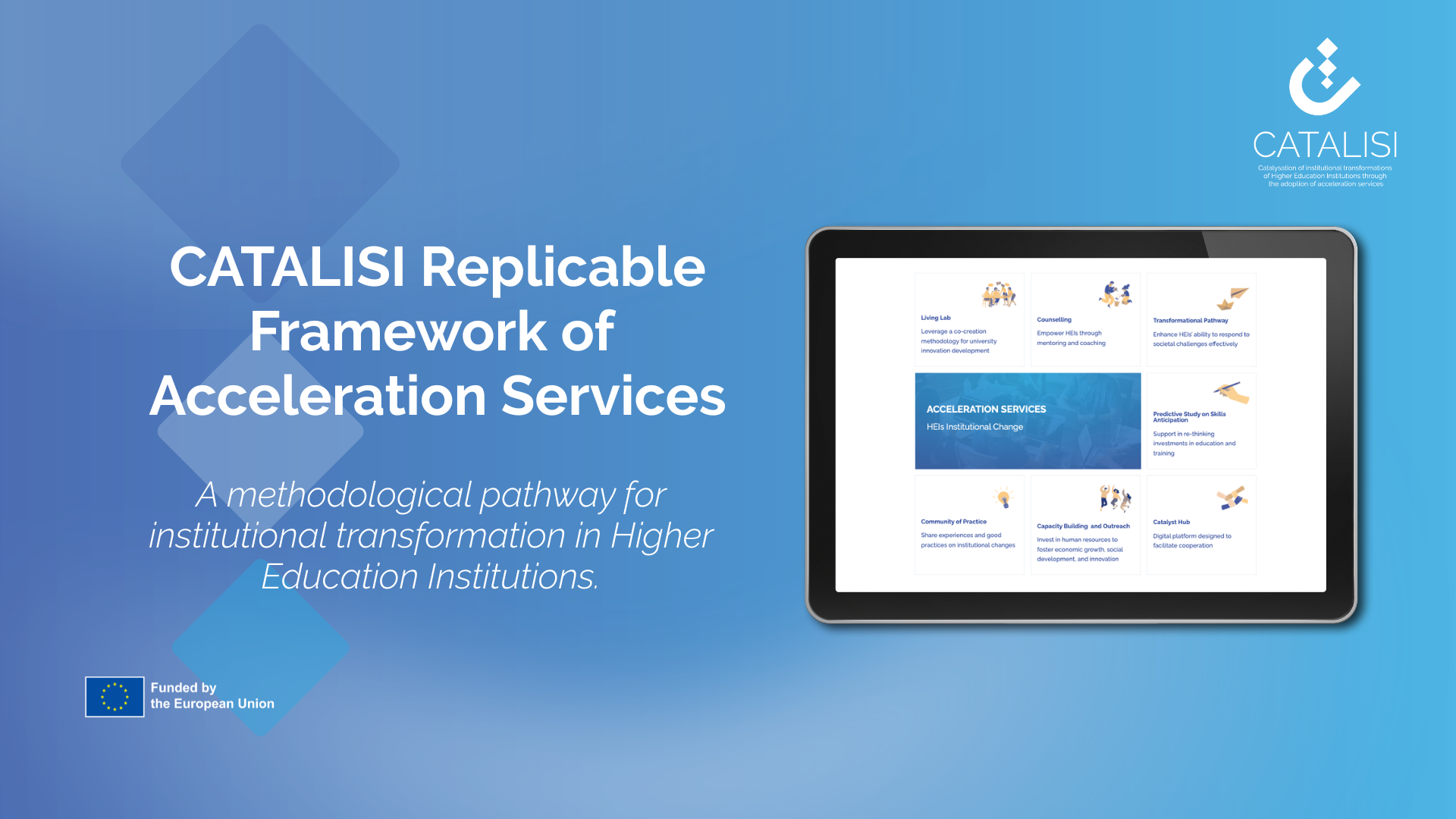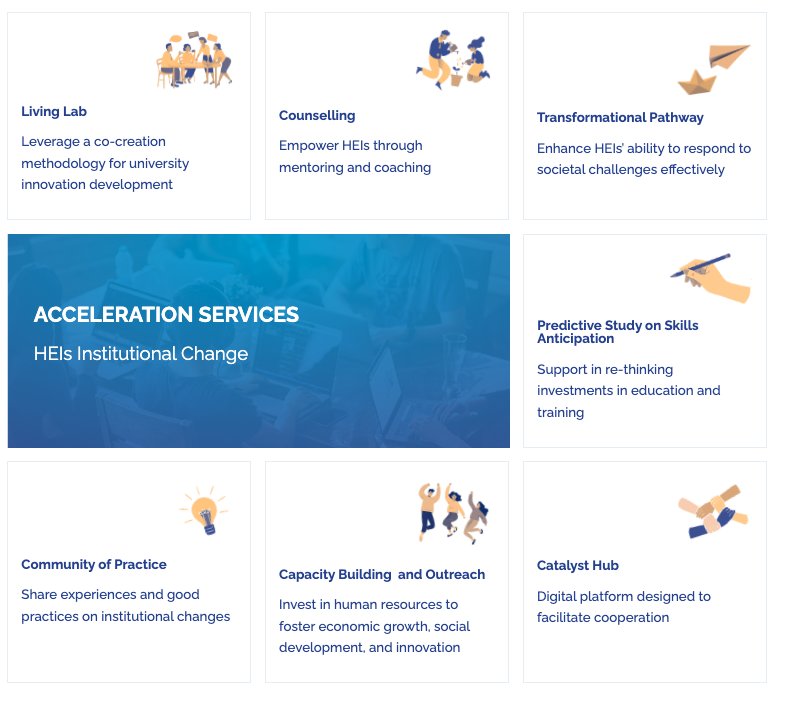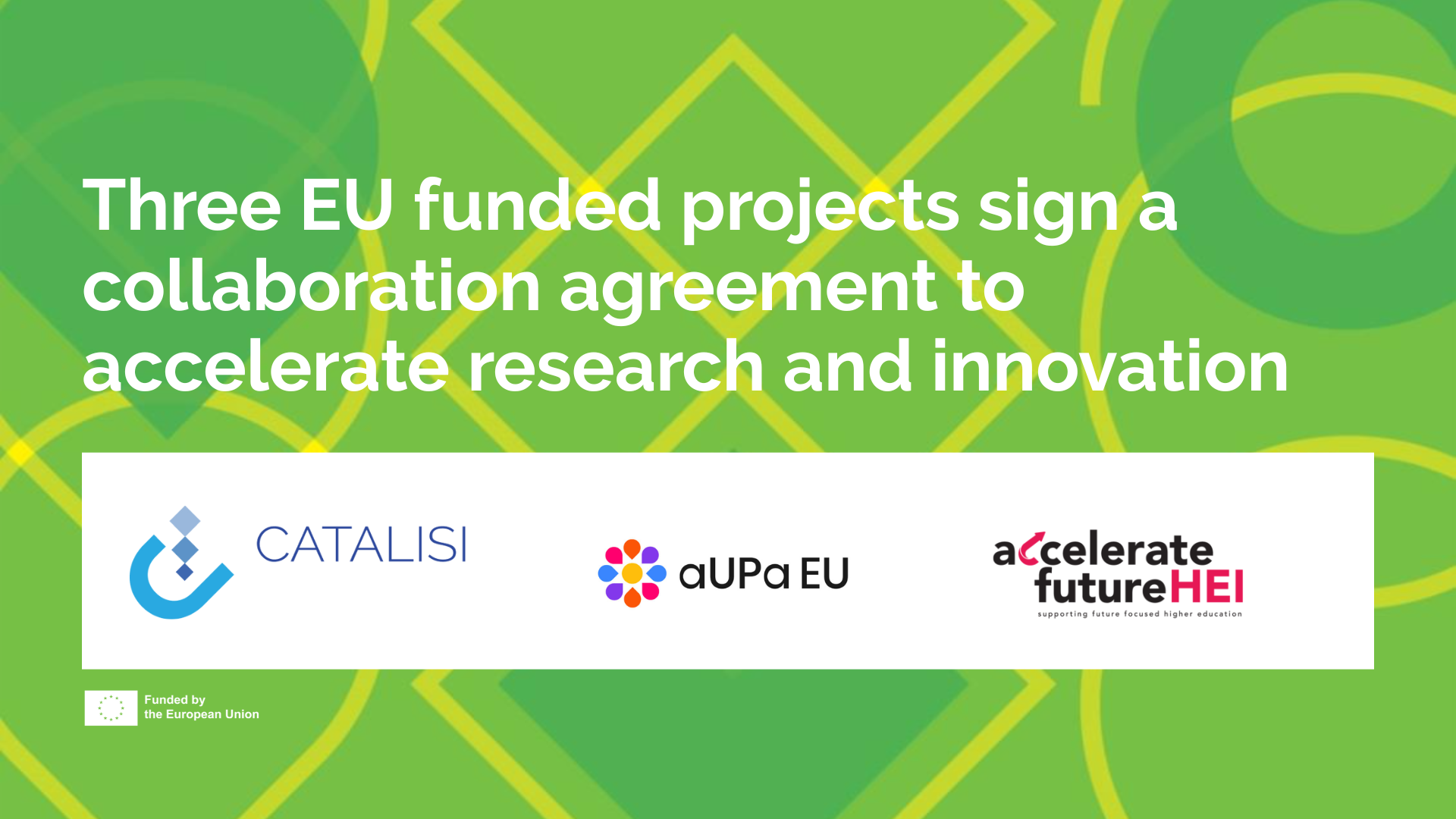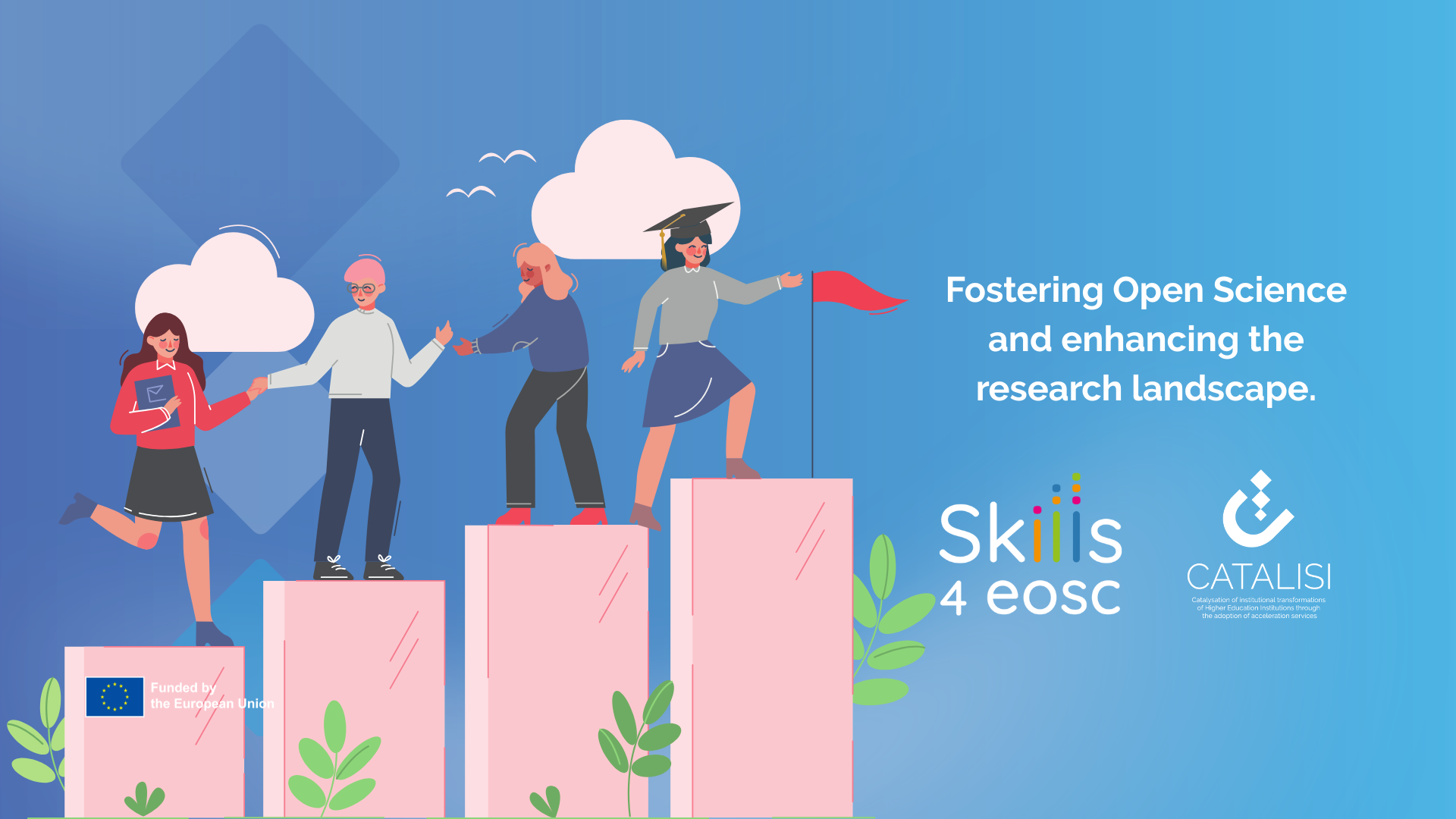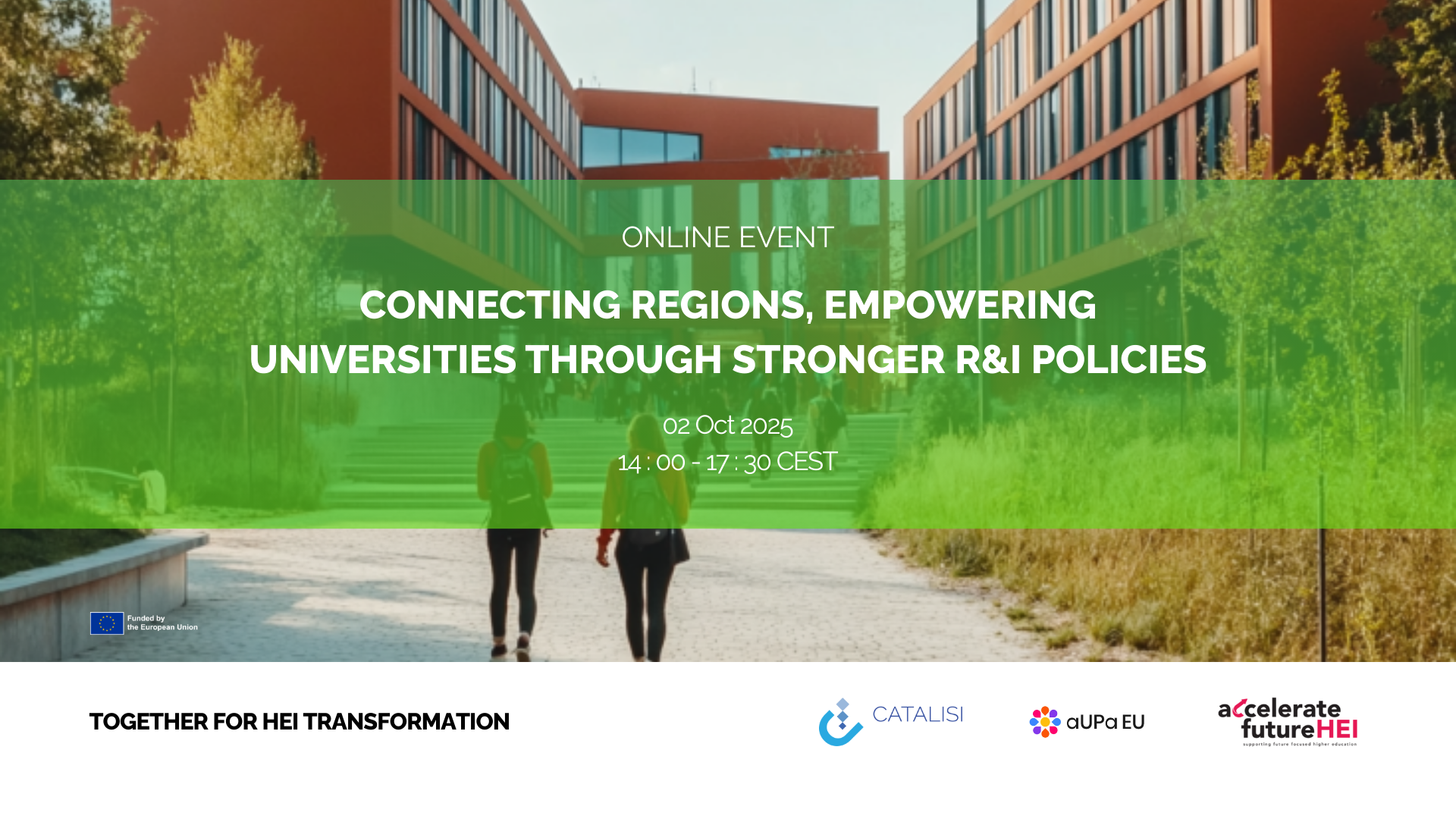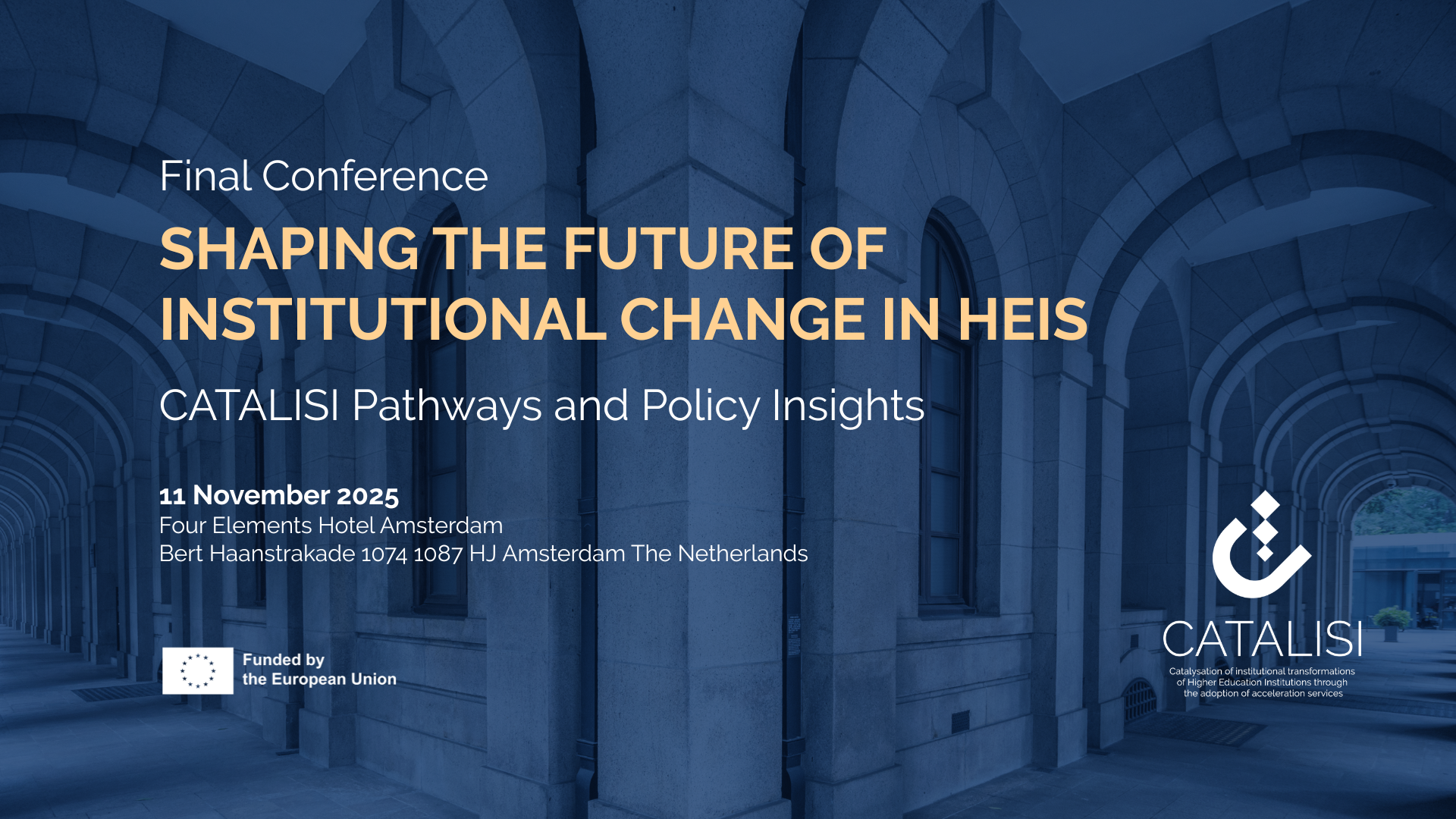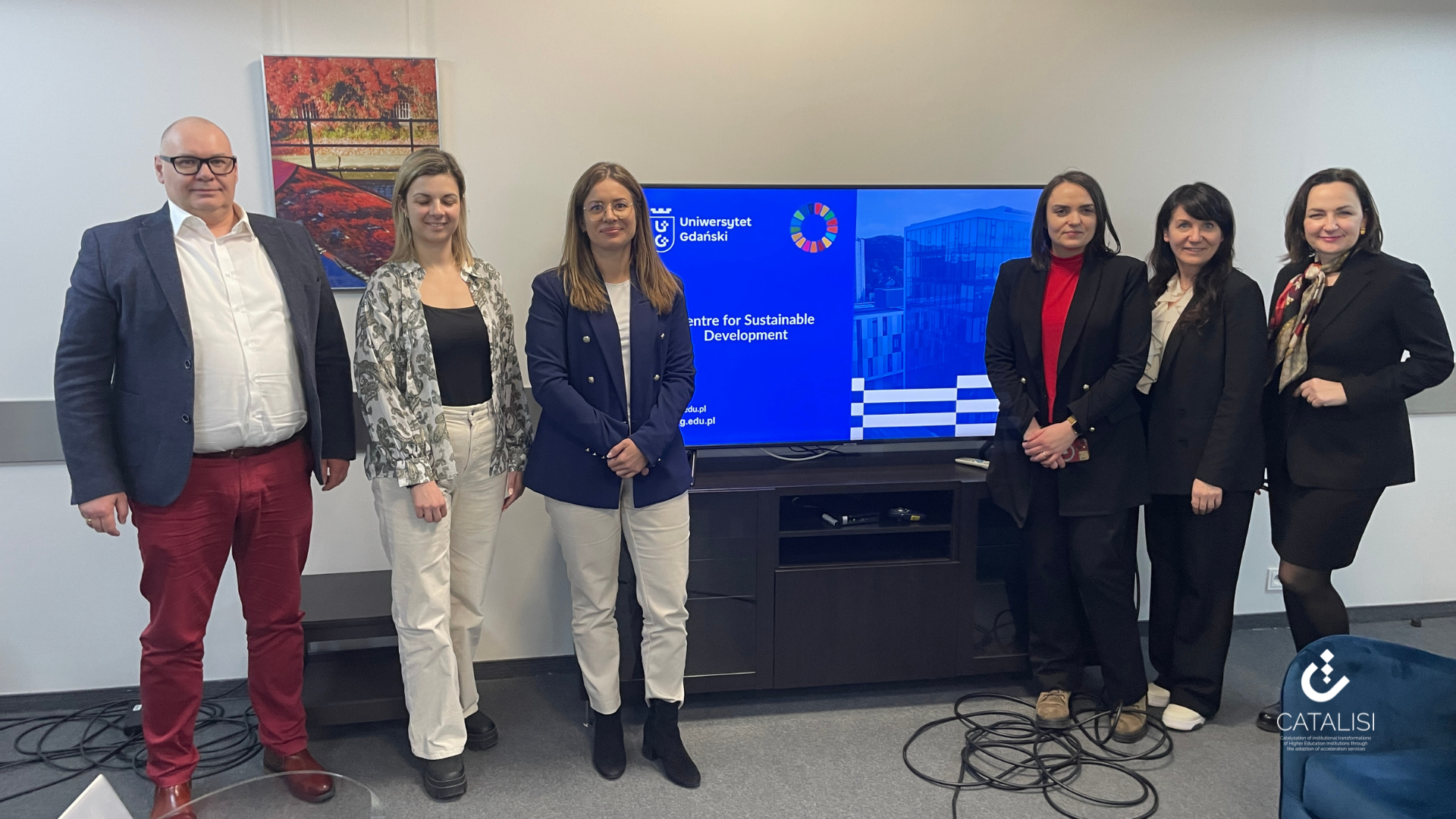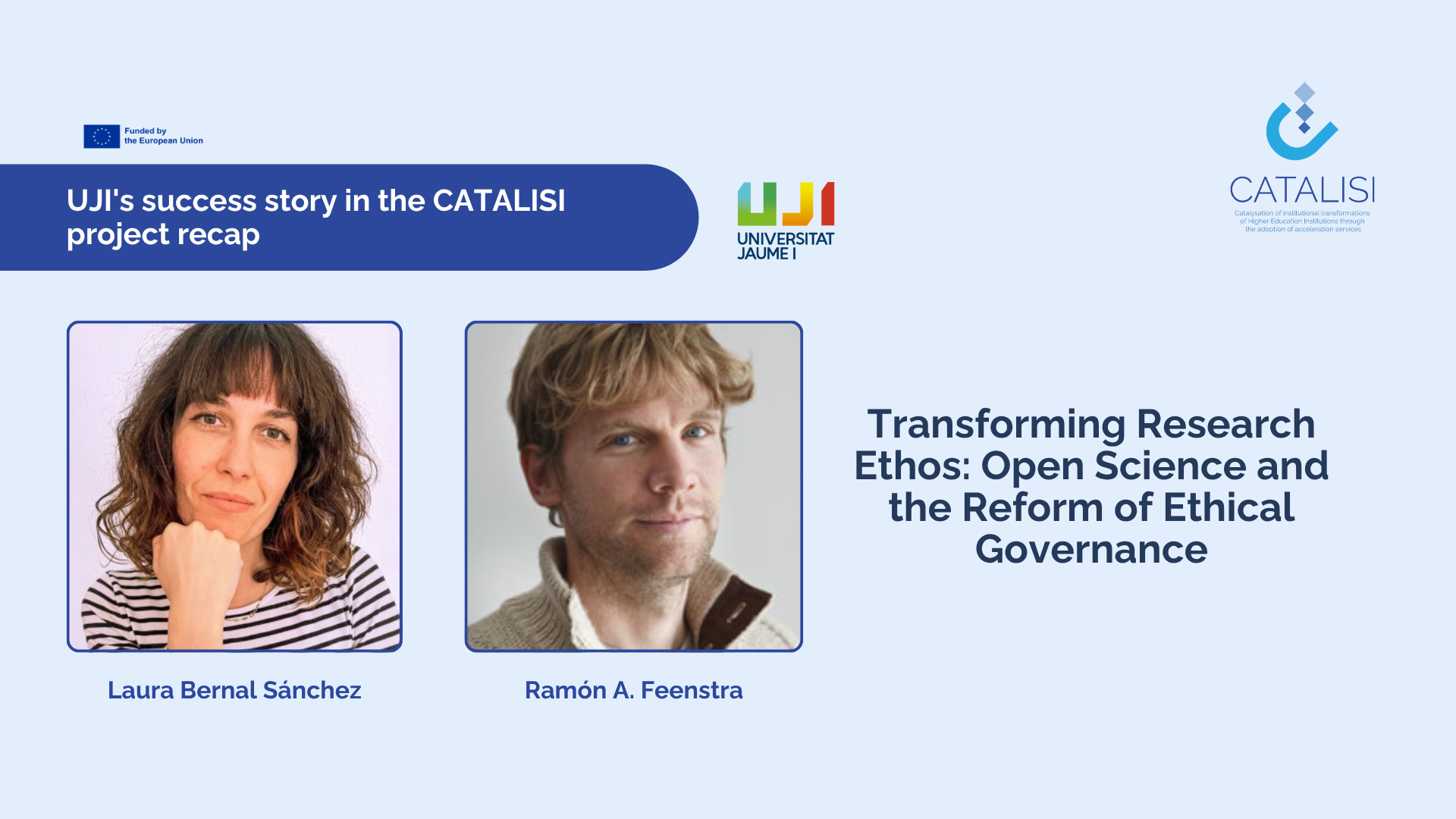On 11 November 2025, the CATALISI consortium hosted its Final Conference at the Four Elements Hotel in Amsterdam, bringing together policymakers, researchers, university leaders, and innovation stakeholders to reflect on three years of collaborative work. The event, titled “Shaping the Future of Institutional Change in HEIs”, was a true success and celebration for the project, showcasing the project’s achievements, sharing lessons learned, and validating policy recommendations for the future of the European Research Area (ERA).
Opening and Presentation of Results
The day began with a welcome from the CATALISI coordinators Laura Mentini and Stefania Laneve (APRE), who presented the CATALISI acceleration framework, and a set of seven innovative services designed to catalyse institutional transformation in Higher Education Institutions (HEIs).
This was followed by an evaluation overview from University College Cork (UCC), highlighting how formative and summative assessments had tracked progress across partner institutions. The evaluation stressed the importance of co-created KPIs, peer learning, and Theory of Change approaches to embed transformation sustainably.
Insights from Sister Projects
The morning continued with contributions from Rimante Rusaite (Accelerate Future HEI) and Jesús Alcober (aUPaEU), who shared synergies and insights from their respective projects. Accelerate Future HEI showcased transformation pathways tested across nine universities, while aUPaEU presented the Agora digital platform, already deployed in 12 university alliances to support collaboration and shared infrastructures. Together with CATALISI, these projects demonstrated how acceleration services can act as systemic enablers of change.
Research Culture Workshop
A central part of the conference was the workshop on research culture and assessment reform, led by experts from Utrecht University, Amsterdam UMC, and Universitat Jaume I (UJI). The session explored the Dutch Recognition and Rewards programme discussing diversification of career paths, balancing individual and team performance, and embedding open science. Then, survey results and interview studies on research culture were presented. Findings revealed both progress and persistent challenges: while 44% of respondents felt research culture had improved in the past years, knowledge of open access publishing routes remained limited. The session also highlighted the role of theatre to support a positive research culture in universities, as a very creative example of institutional transformation.
The workshop emphasised that culture change is harder than policy change, requiring leadership, supervision, and safe spaces for dialogue.
Policy Validation Session
The afternoon was dedicated to an engaging Policy Validation Session, where policy recommendations on the empowerment of HEIs in line with the European Research Area (ERA), were presented and discussed. An interactive and rich panel discussion included representatives from the European Research Executive Agency (REA), University Industry Innovation Network (UIIN), Universitat Politècnica de Catalunya (UPC), Kaunas University of Technology (KTU), Amsterdam UMC, and University College Cork (UCC). The debate highlighted both barriers and enablers of institutional change in HEIs and Alliances, stressing the need for shared frameworks, leadership mentoring, interoperable infrastructures, and harmonised monitoring systems.
Key Outcomes of the policy validation session included:
- Broad agreement emerged on the need for common operational frameworks for institutional HEIs’ transformation, adaptable to diverse contexts.
- Recognition of the role of leadership support and mentoring programmes to embed change sustainably in universities.
- Emphasis on developing interoperable platforms and infrastructures, supported by harmonised monitoring systems to evaluate and sustain progress.
- Universities must valorise their third mission, framing engagement as ecosystems of knowledge, innovation, learning, and research, dynamic networks of social interaction.
- Policy priorities for ERA 2026–2027: Validation of key areas including capacity building and cultural change, researcher empowerment, open data and open science, FAIR data, and engaged education initiatives to strengthen the transformative role of universities.
Networking and Dissemination
Throughout the day, participants also engaged in a dynamic poster session and networking corner, showcasing initiatives from across Europe. This space allowed projects and organisations to exchange experiences, increase visibility, and strengthen collaborations. Several CATALISI synergy projects contributed, including GILL focusing on reducing gender barriers in innovation and entrepreneurship; PATTERN promoting Open and Responsible Research and Innovation (Open RRI) through training modules and policy analyses for researchers; SKILLS4EOSC and REINFORCING further contributing to skill-building, capacity development on open science and open RRI, and fostering collaboration in research infrastructures.
Looking Ahead
The CATALISI Final Conference has been a valuable moment of reflection, exchange, and collaboration among experts, policymakers, and academia on the crucial topic of the institutional transformation of Higher Education Institutions, while contributing concretely to the advancement of new R&I policies within the context of the ERA. The conference also demonstrated that building synergies, real cooperation and shared learning is fundamental to advancing institutional transformation in HEIs. CATALISI has laid the groundwork for systemic change, empowering universities to act as drivers of research, innovation, and education in Europe. Next steps include:
- Publication of the Joint Policy Brief (December 2025), informing the ERA Policy Agenda 2025–2027.
- Continued collaboration through the joint webinar with INSPIRING ERA project (28 November 2025) and the Agora workshop (January 2026).
Download all the presentations from the final conference bellow:
- CATALISI Final Conference_Accelerate Future HEI
- CATALISI Final Conference_aUPaEU
- CATALISI Final Conference_Marjon van Wijnbergen
- CATALISI Final Conference_policy validation session
- CATALISI Final Conference_Research Culture survey
- CATALISI Final Conference_Research Culture workshop_Laura Bernal
- CATALISI Final Conference_Research Culture Workshop
- CATALISI Final Conference_Results & Replicable Framework of acceleration services
- CATALISI Final Conference_Rinske van den Berg

